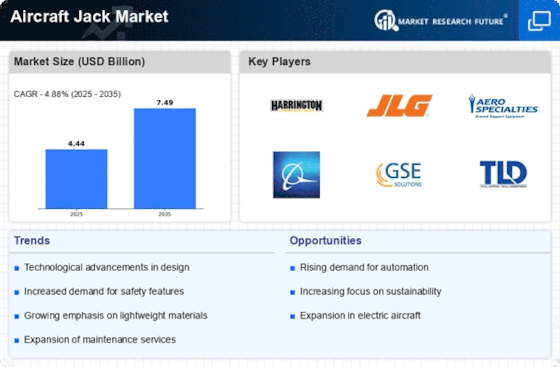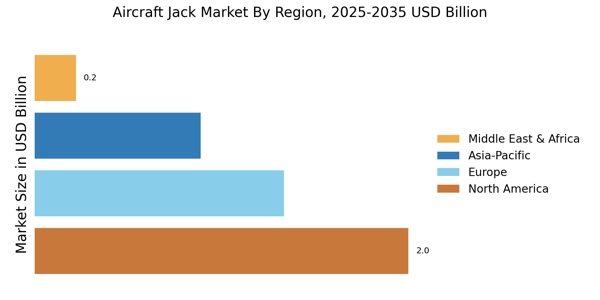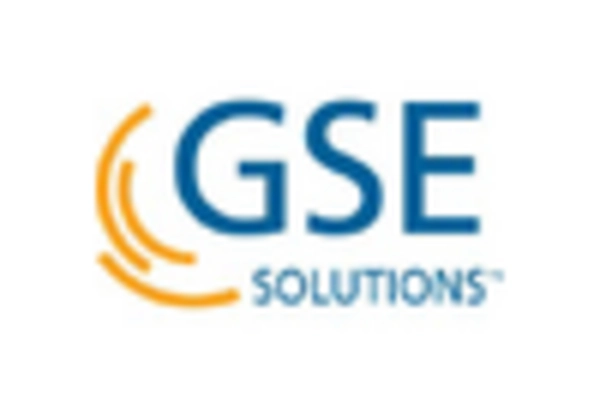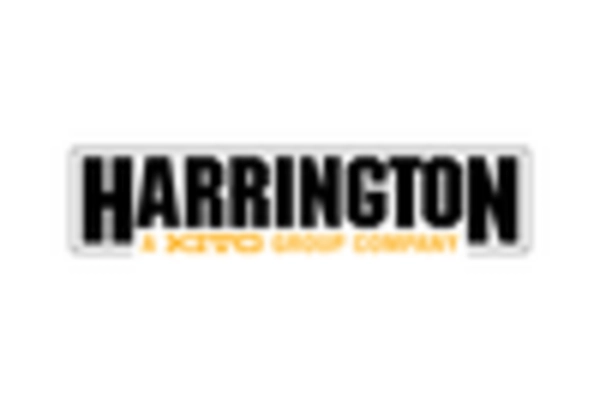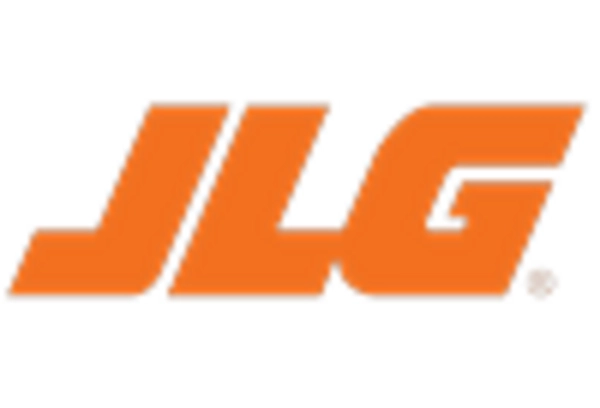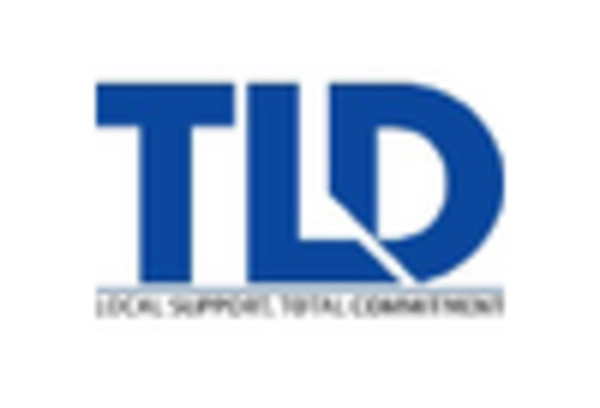Growth in MRO Activities
The Aircraft Jack Market is bolstered by the growth in Maintenance, Repair, and Overhaul (MRO) activities. As the aviation sector expands, the need for regular maintenance and repair services becomes paramount. The MRO market is expected to reach approximately USD 100 billion by 2026, which indicates a robust demand for aircraft jacks as essential tools in these operations. This growth in MRO activities suggests that the Aircraft Jack Market will continue to thrive, as jacks are critical for ensuring aircraft safety and operational efficiency during maintenance procedures.
Increasing Aircraft Fleet Size
The Aircraft Jack Market is experiencing growth due to the increasing size of the aircraft fleet worldwide. As airlines expand their operations and new players enter the market, the demand for maintenance and servicing equipment, including aircraft jacks, rises. According to recent data, the global aircraft fleet is projected to reach over 39,000 by 2035, which indicates a substantial increase in the need for efficient maintenance solutions. This trend suggests that the Aircraft Jack Market will likely see a corresponding rise in demand for jacks that can accommodate various aircraft sizes and types, thereby driving innovation and competition among manufacturers.
Rising Demand for Electric Aircraft
The Aircraft Jack Market is poised for transformation with the rising demand for electric aircraft. As the aviation industry shifts towards more sustainable practices, the introduction of electric aircraft necessitates specialized maintenance equipment, including aircraft jacks designed for these new models. This shift may lead to the development of jacks that cater specifically to the unique requirements of electric aircraft, such as weight distribution and battery access. The Aircraft Jack Market could see a surge in innovation as manufacturers adapt to these emerging trends, potentially reshaping the competitive landscape.
Regulatory Compliance and Safety Standards
The Aircraft Jack Market is significantly influenced by stringent regulatory compliance and safety standards imposed by aviation authorities. These regulations necessitate the use of high-quality, reliable jacks that meet specific safety criteria. As airlines and maintenance organizations strive to adhere to these regulations, the demand for advanced aircraft jacks that ensure safety during maintenance operations increases. The market is likely to benefit from innovations that enhance safety features, such as automatic locking mechanisms and load monitoring systems, which are becoming essential in the Aircraft Jack Market.
Technological Innovations in Aircraft Jacks
The Aircraft Jack Market is witnessing a wave of technological innovations that enhance the functionality and efficiency of jacks. Manufacturers are increasingly integrating advanced materials and smart technologies into their products, leading to lighter, more durable, and user-friendly jacks. Innovations such as hydraulic systems with improved lifting capacities and automated jacking systems are becoming prevalent. These advancements not only improve operational efficiency but also reduce the time required for maintenance tasks, thereby appealing to airlines and MRO providers. The ongoing technological evolution is likely to shape the future of the Aircraft Jack Market.


